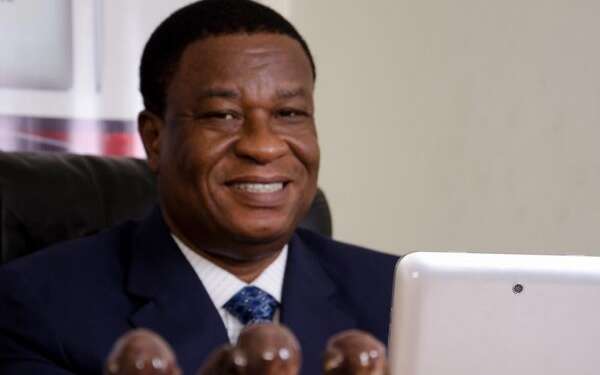Dr. Prince Kofi Kludjeson, the President of Celltel Networks Limited, opened up about his childhood dreams and the challenges he faced on his journey to becoming a successful businessman.
Dr. Kludjeson disclosed that he was born a royal as his late father was enstooled Chief of Hiave in the Volta Region.
For him, he was inspired by his father’s influential role as a chief, where he interacted with a diverse range of people, including district commissioners and business professionals. These encounters left a lasting impression on young Kludjeson and fueled his entrepreneurial ambitions.
However, after the untimely death of his father, Dr. Kludjeson faced a difficult period. “It became difficult because I was in middle school form 2 when my father passed away.”
Despite the challenges, he was determined to continue his education and complete high school. “I had to continue to form 4 where we finished,” he told Rev Erskine in an exclusive interview on Y 107.9 FM’s Y Leaderboard Series.
During this trying time, Dr. Kludjeson recounted that he and his mother had to make tough decisions about their future. They ventured into farming in their village, seeking stability and a source of income. “In the village, we started within farms and so forth and so good,” he explained, highlighting their resourcefulness and resilience in the face of adversity.
However, there was a divergence of opinions between mother and son regarding his career path. “My mother wanted me to go to training college because she said poor people went there.”
His mother believed that training college was the safer option for his future. Yet, Kofi’s passion for business burned bright, and he harboured a deep desire to become an Accra businessman, much like his late father.
Dr. Kludjeson enrolled in training college but found himself restless and unsatisfied with the path he had chosen. “About two weeks later, I ran away,” he admitted candidly.
The call to entrepreneurship and the pull of his childhood dream was too strong to ignore. He returned to his roots, embracing the hard work of farming. He further indicated that he later had to work with an uncle at the Ghana Water Works where he became a labourer and was subsequently promoted to the role of a messenger as he gained favour.
By: Jude Tackie






